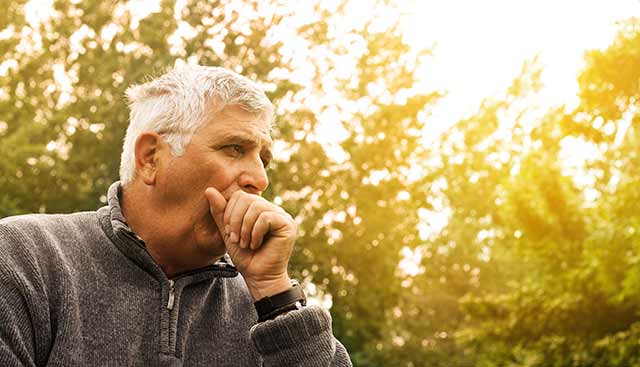
Secondhand Smoke and Cancer – The Threat Is Very Real
Just about everyone knows that smoking has been directly and indisputably linked to many serious health problems – most notably, lung cancer and several other malignancies, as well as heart and lung disease. However, some people are surprised to learn that breathing in secondhand smoke from a burning cigarette, cigar, pipe or the exhaled breath of a smoker is just as hazardous as smoking itself. Secondhand smoke is extremely powerful; even with minimal exposure, some adults and children become significantly more susceptible to developing colds, ear infections, asthma, pneumonia and other related health issues.
The main reason that secondhand smoke is so dangerous is that it contains thousands of toxic and carcinogenic (cancer-causing) substances, including carbon monoxide, cyanide, formaldehyde, ammonia, lead and polonium (a radioactive substance). These harmful chemicals can remain in the air for hours, and their damaging residue can cling to hair, clothing, carpeting and upholstery. This means that even if you’ve made a well-informed and conscious decision to forego smoking for yourself, you can still be exposed to tobacco’s numerous dangers through secondhand smoke in public places, your workplace and even your home. Keep in mind that simply opening a window or using a fan will not be effective enough to counter the negative effects of smoke exposure.
Here are some ways to protect yourself and your family from the perils of secondhand smoke, as well as the heightened risk of developing lung cancer that goes along with it:
- At home – Never allow anyone to smoke inside your house. If a visitor would like to smoke, politely ask him or her to step outside.
- While driving – Do not allow anyone to smoke in your car. If a passenger would like to smoke, pull over when possible and take a “stretch” (and smoke) break.
- At work – If secondhand smoke is a problem where you work, research the laws of your state that restrict smoking in the workplace, and ask your employer to enforce them.
- While traveling – Always request nonsmoking hotel rooms, or better yet, stay at smoke-free properties.
- While shopping – Patronize only those businesses that have and enforce smoke-free policies.
- While dining out – Tell the owners of restaurants that allow smoking that secondhand smoke bothers you, and point out that simply designating a “no smoking” section does not provide adequate protection against its hazards.
- With others – If a family member or friend is a smoker, encourage him or her to quit by offering support.
If you have questions about the effects of secondhand smoke or other lung cancer risk factors, you can turn to the lung cancer specialists in the Thoracic Oncology Program at Moffitt Cancer Center. We can help you evaluate your personal lung cancer risk factors and determine the appropriate next steps. For instance, many long-time smokers benefit from our lung cancer screening program, which is among the best in the nation. In fact, Moffitt has been named a Screening Center of Excellence by the Lung Cancer Alliance.
No referral is required to meet with the experienced team of oncologists at Moffitt Cancer Center. To request an appointment, call 1-888-663-3488 or complete a new patient registration form online.
